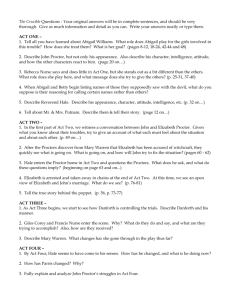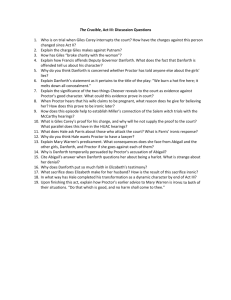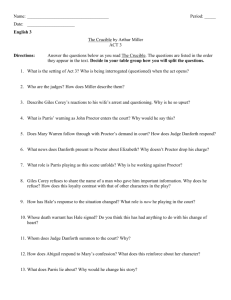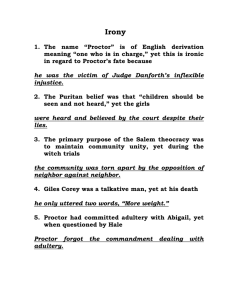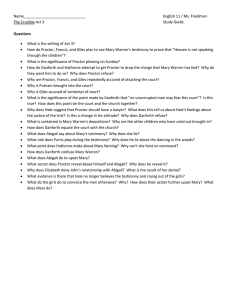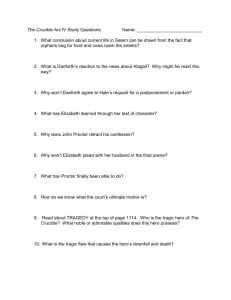The Crucible Act III Study Guide
advertisement
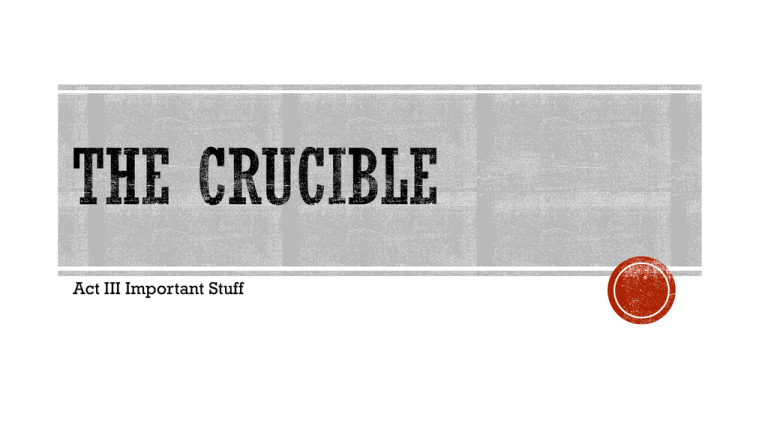
Act III Important Stuff The setting of Act III is ___________________________________________________. P. 83: Note Miller’s description of the Meeting House. “…boards of random widths make up the walls.” What does this imply about the nature of the court? Characters introduced: Judge Hathorne (p.85) and Deputy Governor Danforth (p.85) Role of Authority (theme) and the abuse of it: P.87 Danforth’s quotes P.88 Authority given to the girls through their testimonies “We burn a hot fire here; it melts down all concealment” (89) [What does this metaphor mean?] Danforth’s arrest of the town on p. 94: Why? Names are on a petition (if you’re on the petition, then you could go to prison, too. P. 97 Giles cannot give up his witness. Why? (Same reason as above) P. 98: “No uncorrupted man may fear this court, Mr. Hale!” (If you haven’t done anything wrong, you have nothing to fear. Ha— this quote is ironic because people who testify have everything to fear). Others? P. 91 Biblical allusion to Cain and Abel. Why? Parris telling John this as a way to back up the girls’ testimony that the nice women in the community are also witches. Danforth italics/description: “…it is a reflection on himself he resents.” What does this mean? (p. 93) (b/c it questions Danforth’s authority) “I beg you be clear, open as the sky, and honest” (93). [Everything the court is not]. Who’s talking to whom? Danforth speaking to Proctor. Why is this ironic? On page 95, John Proctor reminds Mary Warren to, “Do that which is good, and no harm shall come to thee.” How is this statement ironic in relation to The Crucible? “…we live no longer in the dusky afternoon…” (94). Explain. Everything is coming to light (evil is obvious and good is, too) Why did Mary Warren lie initially? Didn’t want to go to jail herself (feels threatened by Abigail) Does Danforth believe Mary Warren? Proctor? (p.108,110,111) Yes, a part of Danforth does believe Mary Warren and Proctor’s story but he won’t admit it b/c he is too proud—see quotes on these pages Why does Proctor confess? Save his wife Proctor compares Abigail to a “lump of vanity” (110). Reverend Hale’s transformation: p.114 Passage from “..God is dead!” (119) to “…we will burn together” (120). What does this passage mean, and what does it imply about John Proctor’s character? Power hungry Dansforth is just as guilty as I am (an adulterer)


